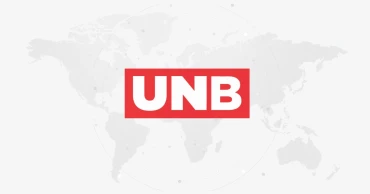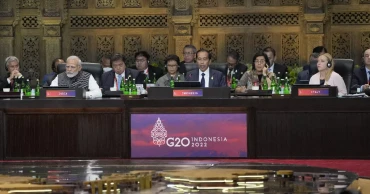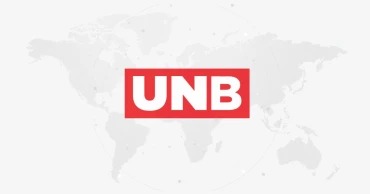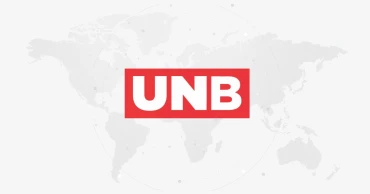European Council
EU proposes digitalizing Schengen visa application process: Here’s what this means
The European Union (EU) member states’ ambassadors on March 29 agreed the Council’s negotiating mandate for a proposal to digitalize the Schengen visa procedure.
The proposal includes the ability to apply for Schengen visa online, as well as the replacement of the present visa sticker with a digital visa, according to a press release of the European Council.
The move intends to enhance the efficiency of the visa application process as well as the security of the Schengen area, it said.
Read More: Schengen visa fee for Bangladeshis to go up from Feb 2
“A digital Schengen visa will make it easier for legitimate travellers to apply and will at the same time help make the Schengen area safer. Online applications will reduce the number of trips to the consulate for travellers and make the process smoother for national administrations. At the same time, the digital visa will put an end to the risk of falsification and theft of the visa sticker,” said Maria Malmer Stenergard, Swedish minister for migration.
The proposed new guidelines will establish a platform for visa applications. All Schengen visa applications will be made through this platform – a single website that will forward them to the applicable country visa systems.
Schengen visa applicants will be able to enter all required data, submit electronic copies of their travel and supporting papers, and pay their visa fees on the website, it said.
Read More: Saudi Visa Service Centre launched in Dhaka
Travellers will also be informed of any decisions made regarding their Schengen visa.
First-time applicants, those whose biometric data is no longer valid, and those with a new travel document, will be required to be present in-person at the consulate, said the press release.
When a person wishes to visit several Schengen countries, the platform will automatically decide which one is in charge of evaluating the application based on the length of stay.
Read More: US announces in-person interview waivers for certain visa applicants throughout 2023
Nevertheless, the applicant will be able to choose whether the application should be handled by a certain member state based on the purpose of travel, the release also said.
Schengen visas will be issued in digital format, as a 2D barcode that is cryptographically signed, under the proposed new guidelines. This would reduce the security threats associated with counterfeit and stolen visa stickers.
Background and next steps for Schengen visa process
Current migration and security issues have dramatically altered the setting of the EU’s visa policy. Furthermore, the Covid-19 outbreak hindered Schengen visa processing and generated a demand for additional digital procedures.
Read More: Umrah e-visa: Biometric data must for pilgrims from Bangladesh, 4 other countries
Simultaneously, technology advancements give additional security features and potential to make procedures more efficient and effective for both visa applicants and national authorities, the release said.
In this regard, the Commission proposed a legislative proposal aiming at digitalizing the Schengen visa procedure on April 27, 2022.
The Council presidency will begin discussions with the European Parliament to agree on the final text based on the negotiating mandate agreed upon on March 29 meeting.
Read More: Bangladeshi applicants for UK visa need to pay online from Nov 28
2 years ago
European leader calls on world, China to pressure Russia
The European Council president urged global powers Tuesday to intensify pressure on Russia over its war against Ukraine, including Moscow's biggest supporter, China, saying that this week's meeting of the world's largest economies was crucial to stopping Moscow's push "to use food and energy as weapons.”
Charles Michel, speaking to reporters on the first day of the Group of 20 meeting in Bali, said the nine-month war waged by Russia, a permanent member of the U.N. Security Council, has disrupted lives across the world, as food and energy prices surge and economies stagnate.
“Russia’s war impacts us all, no matter where we live, from Europe to Africa or the Middle East, and the single best way to end the acute crisis in food and energy is for Russia to end this senseless war and to respect the U.N. charter,” Michel said. “The Kremlin has decided to weaponize food, driving up hunger, poverty and instability.”
Read more:Biden to meet China's Xi on Monday for Taiwan, Russia talks
Europe, Michel said, is working to help Ukraine, a big food exporter before the war, increase its shipments, and is also trying to address disruptions in fertilizer supplies and rising prices. EU sanctions against Russia, he said, don’t target agricultural products, even though Russia has imposed restrictions on its own food and fertilizer products.
“This is not a battle (of) Russia against the Western part of the world. It’s a battle for the U.N. charter. It’s a battle for the international law. It's a battle for the idea that this is not acceptable to try to change by force internationally recognized borders.”
Michel said he had no plans to meet with the most senior Russian present in Bali, Foreign Minister Sergey Lavrov.
China, the world's second biggest economy, has largely refrained from public criticism of Russia’s war, although Beijing has avoided direct support of the Russians, such as supplying arms. Michel avoided direct criticism of China when asked if Beijing has shown any signs of changing its steadfast support of Russia in recent days.
Instead, he said that the G-20 meeting Tuesday and Wednesday was important to convince all nations present “to put more pressure on Russia."
After a meeting Monday between President Joe Biden and Chinese President Xi Jinping, Biden said the two leaders discussed Russia’s aggression against Ukraine and “reaffirmed our shared belief” that the use or even the threat of nuclear weapons is “totally unacceptable” — a reference to Moscow’s thinly veiled threats to use atomic weapons as its invasion of Ukraine has faltered.
Read more: UN Security Council rejects Russian request for bioweapons investigation
Michel said that Europe must make sure that it creates a different economic and political relationship with China than the one it did with Russia.
“We don't want to make the same mistakes maybe we make with Russia on fossil fuels,” which Europe was very dependent on, “with China, (where) we don't want to be too dependent for the innovative technology that we need today and that we need more in the future. That's why it's important to rebalance the relationship,” Michel said.
3 years ago
EU to remain “steadfast partner” of Bangladesh on Rohingya front: Envoy
Head of Delegation of the European Union (EU) to Bangladesh Ambassador Charles Whiteley has said they will continue to be a “steadfast partner” of Bangladesh in meeting the needs of the Rohingya and the host community with continued pressure on Myanmar for their safe return to their place of origin in Rakhine State.
“Clearly, I think, the majority of the Rohingya do want to go back to home,” he told UNB in an interview mentioning that everyone, including the government of Bangladesh, underlined that any return has to be “voluntary and safe” for the refugees.
Responding to a question on the EU's business link with Myanmar, the EU envoy said they are very careful when it comes to the economy as some people say why the EU does not suspend the Everything But Arms (EBA) scheme.
Read: ‘Sky is the limit’, says new EU envoy eyeing dynamic relations with Bangladesh
Myanmar has been a member of the World Trade Organization (WTO) since 1995 and, as a least developed country, benefits from the EBA scheme, which grants unilateral duty- and quota-free access for all exports, except arms and ammunition, to the EU.
4 years ago
European Council adopts conclusions on EU strategy for cooperation in Indo-Pacific
The European Council has approved conclusions on an EU strategy for cooperation in the Indo-Pacific, setting out the European Union’s intention to reinforce its strategic focus, presence and actions in this region of prime strategic importance for EU interests.
The aim is to contribute to regional stability, security, prosperity and sustainable development, at a time of rising challenges and tensions in the region, said the EU Embassy in Dhaka on Monday.
Also read:EU summit postponed after Council President Michel goes ...
The EU and its regional partners will work together in order to mitigate the economic and human effects of the COVID-19 pandemic and work towards ensuring an inclusive and sustainable socio-economic recovery, according to the Council of the European Union.
The renewed EU commitment to the Indo-Pacific, a region spanning from the east coast of Africa to the Pacific island states, will have a long-term focus and will be based on upholding democracy, human rights, the rule of law and respect for international law.
Current dynamics in the Indo-Pacific have given rise to intense geopolitical competition adding to increasing tensions on trade and supply chains as well as in technological, political and security areas.
“Human rights are also being challenged. These developments increasingly threaten the stability and security of the region and beyond, directly impacting on the EU’s interests,” reads a media release on the adopted conclusions.
Consequently, the EU’s approach and engagement will look to foster a rules-based international order, a level playing field, as well as an open and fair environment for trade and investment, reciprocity, the strengthening of resilience, tackling climate change and supporting connectivity with the EU.
Also read:EU Council President Tusk to meet May ahead of Brexit summit
Free and open maritime supply routes in full compliance with international law remain crucial, said the European Council.
The EU said it will look to work together with its partners in the Indo-Pacific on these issues of common interest.
It will continue to develop partnerships in the areas of security and defence, including to address maritime security, malicious cyber activities, disinformation, emerging technologies, terrorism, and organised crime.
The Council tasked the High Representative and the Commission with putting forward a Joint Communication on cooperation in the Indo-Pacific by September 2021.
The conclusions were adopted by the Council by written procedure.
4 years ago
Brussels proposes Digital Green Certificate for COVID-19 vaccinations
The European Commission has presented its vision of the Digital Green Certificate which is meant to serve as proof of inoculation against COVID-19 and is expected to be introduced by mid-June.
4 years ago
EU avoided chaos, explored new paths in turbulent 2020 year
Between the specter of Brexit, the coronavirus pandemic and a new leadership team facing a budget battle, the European Union looked set to remember 2020 as an “annus horribilis.”
5 years ago




.jpg)
.jpg)



